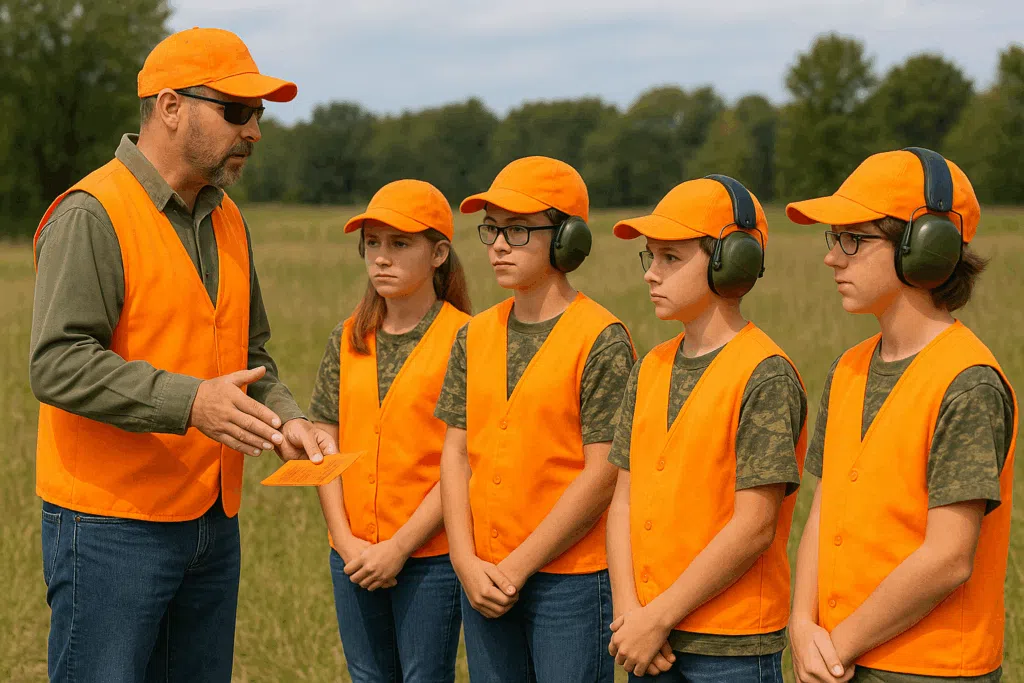Take an Official State-Approved Hunter Safety Course
In Texas, youth seeking hunter education must be 9 years old to enroll in a hunter education course.

Hunter education is an essential step for anyone interested in hunting safely and responsibly in Texas. Understanding the age requirements for enrolling in a hunter education course is crucial for youth hunters and their families. Texas has specific guidelines regarding the minimum age to take hunter education, as well as rules about hunting before completing the course. This article will provide detailed information about these requirements, helping you navigate the process smoothly and ensure compliance with state regulations.
In Texas, youth seeking hunter education must be 9 years old to enroll in a hunter education course. This means that children of various ages can begin learning about hunting safety and ethics at an early stage. The Texas Parks and Wildlife Department (TPWD) encourages youth to take hunter education courses to promote safe hunting practices from the start.
Parental permission is generally required for minors to participate in hunter education classes. Parents or guardians often need to register their children and may be required to accompany them during certain parts of the course, especially for younger participants. This ensures that the youth receive proper supervision and support throughout the learning process.
In Texas, hunter education is generally required for anyone born on or after September 2, 1971, who wishes to hunt. This requirement applies to both residents and non-residents. The Texas Parks and Wildlife Department (TPWD) mandates that these hunters complete a state-approved hunter education course or possess a valid deferral.
Whether you live in Texas or are visiting from another state, if you fall within the age group that requires hunter education, you must have a valid Hunter Education Certificate or a Hunter Education Deferral on your person while hunting. This ensures that all hunters have a baseline understanding of safety and ethical hunting practices.
If you need to find a TPWD-approved hunter safety course, you can visit the Recademics Texas Hunter Education Course or the TPWD hunter education website to see options.
Yes, Texas offers an online hunter education course option that is suitable for youth and adults alike. The Texas Parks and Wildlife Department has approved online hunter education programs that allow students to complete the classroom portion of the course at their own pace from home.
While the online course covers the theoretical aspects of hunter education, students under the age of 18 must still complete a mandatory in-person field day or skills session. This hands-on component is essential for demonstrating safe firearm handling, shooting proficiency, and other practical skills under the supervision of a certified instructor.
The combination of online learning and in-person field days provides flexibility for youth hunters and their families, making it easier to fulfill the hunter education requirements while ensuring that students gain the necessary practical experience.
Enrolling in a youth hunter education course in Texas is a straightforward process. First, visit the Texas Parks and Wildlife Department website or a trusted course such as Recademics Texas Hunter Education to find available courses near you.
Next, select a course that fits your schedule and preferred learning format—either online with an in-person field day or a fully in-person class. Registration typically requires providing basic information about the student, including age and contact details.
For minors, a parent or guardian may need to complete the registration on their behalf and provide consent. Payment for the course is usually required at the time of registration, and fees vary depending on the course provider.
Once registered, students will receive instructions on how to access course materials and schedule their field day. Completing both the classroom and field components successfully will earn the student a hunter education certificate, which is necessary for legal hunting in Texas.
While a parent or guardian is not always required to be physically present during every part of the hunter education course, their involvement is important, especially for younger students. For in-person field days or test sessions, some instructors may require a parent or guardian to accompany the youth to provide support and ensure proper supervision.
Additionally, parents or guardians often need to register their children for the course and provide consent for participation. This involvement helps facilitate communication between instructors and families and ensures that youth hunters have the necessary guidance throughout the education process.
It is advisable to check with the specific course provider regarding their policies on parental presence during classes and field days, as requirements can vary depending on the instructor or location.
Once a student successfully completes the hunter education course in Texas, the hunter education certificate they receive is valid for life. This lifetime validity means that hunters do not need to retake the course or renew their certification at any point.
Furthermore, Texas hunter education certificates are recognized by many other states through reciprocal agreements. This recognition allows hunters who have completed the course in Texas to hunt legally in other states without needing to complete additional hunter education courses, provided those states honor Texas certification.
This lifetime and reciprocal validity make the hunter education certificate a valuable credential for youth and adult hunters alike, supporting safe and responsible hunting practices across state lines.